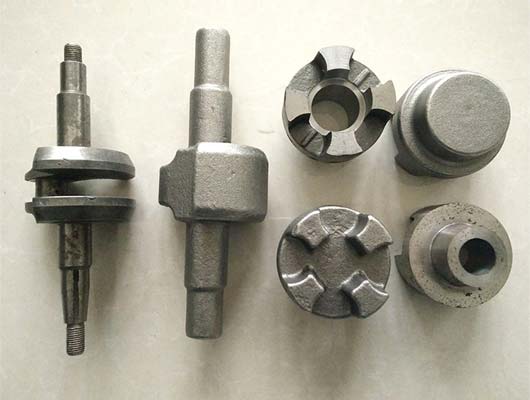- Contact Innally, Let you purchase forgings in China more favorable prices, products more assured!
- Hotline:+(86)15038323776 Email:innally@innally.com
What are the problems of railway forgings in train operation?
- Category: Marine forging, Stainless steel forging
- |
- Date: 12/12/2023
railway forgings may suffer from fatigue cracks, wear, corrosion, installation problems and manufacturing quality problems during train operation. In order to solve these problems, it is necessary to strengthen the quality control of forging manufacturing and installation, strengthen train maintenance, strengthen monitoring and early warning measures.
Product Details
The problems that may occur in railway forging during train operation mainly have the following aspects:
Fatigue cracks: Railway forgings are subject to periodic loads during train operation, which may lead to fatigue cracks inside the forgings. The formation and expansion of fatigue cracks may lead to the fracture of forging parts and pose a threat to the safety of train operation.
Wear and tear: Railway forgings will have friction with train wheelsets, other parts, etc., during the operation of the train, which may cause wear and tear of the forgings. Wear and tear may affect the shape and size of the forgings, which in turn affects the stability and safety of the train operation.
Corrosion: Railway forgings are in the outdoor environment for a long time, and may be corroded by the action of atmosphere, rain, etc. Corrosion may affect the structure and performance of forgings, reduce their strength, and pose a threat to the safety of train operation.

Installation problems: there may be some problems during the installation of railway forgings, such as unstable fixing and inaccurate positioning. These problems may cause the forgings to fall off or shift during train operation, posing a threat to the safety of train operation.
Manufacturing quality problems: there may be some quality problems in the manufacturing process of railway forgings, such as uneven materials and poor processing. These problems may cause the forging parts to break, deformation and other problems during the train operation, which poses a threat to the train operation safety.
In order to solve these problems, the following measures can be taken:
Improve the quality of forging: strengthen the quality control of raw material control, mold manufacturing, blank preparation, heating and forging, cooling and processing, to ensure that the quality of forging manufacturing meets the requirements.
Strengthen forgings testing: Through non-destructive testing, mechanical properties testing and other methods to carry out comprehensive testing of forgings to ensure that its structure and performance meet the requirements.
Improve the installation quality: strengthen the installation quality control of railway forgings to ensure that they are firmly installed and accurately positioned. Strengthen train maintenance: regular maintenance of the train, timely discovery and treatment of forging problems.
Strengthen monitoring and early warning: Through the installation of monitoring equipment and early warning system, timely detection and treatment of forging problems to ensure the safety of train operation.
In short, railway forgings may suffer from fatigue cracks, wear, corrosion, installation problems and manufacturing quality problems during train operation. In order to solve these problems, it is necessary to strengthen the quality control of forging manufacturing and installation, strengthen train maintenance, strengthen monitoring and early warning measures. Only in this way can we ensure the safety and stability of railway forgings and ensure the normal operation of trains.
nannan
INNALLY mainly provides you with various types of cast and forged parts products. Welcome your inquiries! innally@innally.com
Related Products
Search
Forging center
- Steel forgings
- Aluminium alloy forging
- Titanium alloy forging
- Stainless steel forging
- Copper forging
- Automotive forgings
- Locomotive forging
- Bicycle forgings
- Motorcycle forging
- Rigging and fasteners
- Bearing forging
- Electric power fittings
- Marine forging
- Mechanical forgings for metalworking
- Mining machinery forgings
- Marine engineering forgings
- Construction machinery forgings
Popular product

© 2025. All Rights Reserved.






